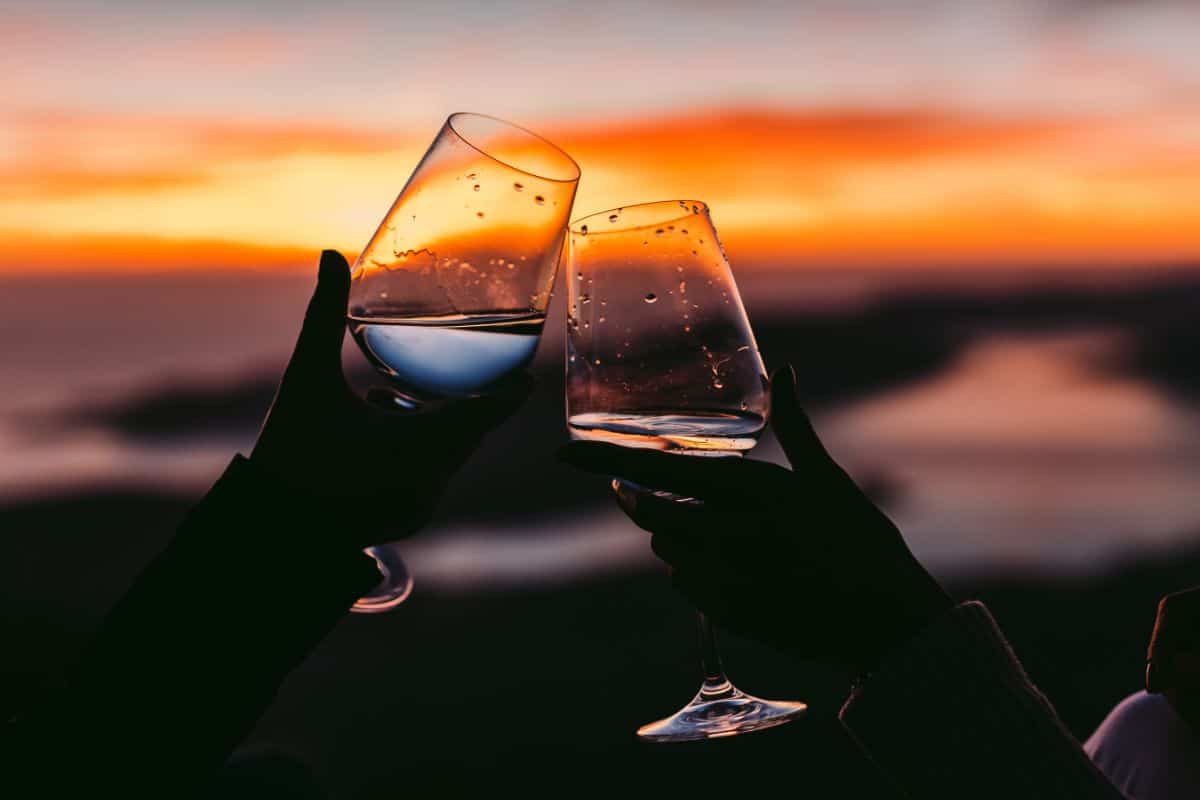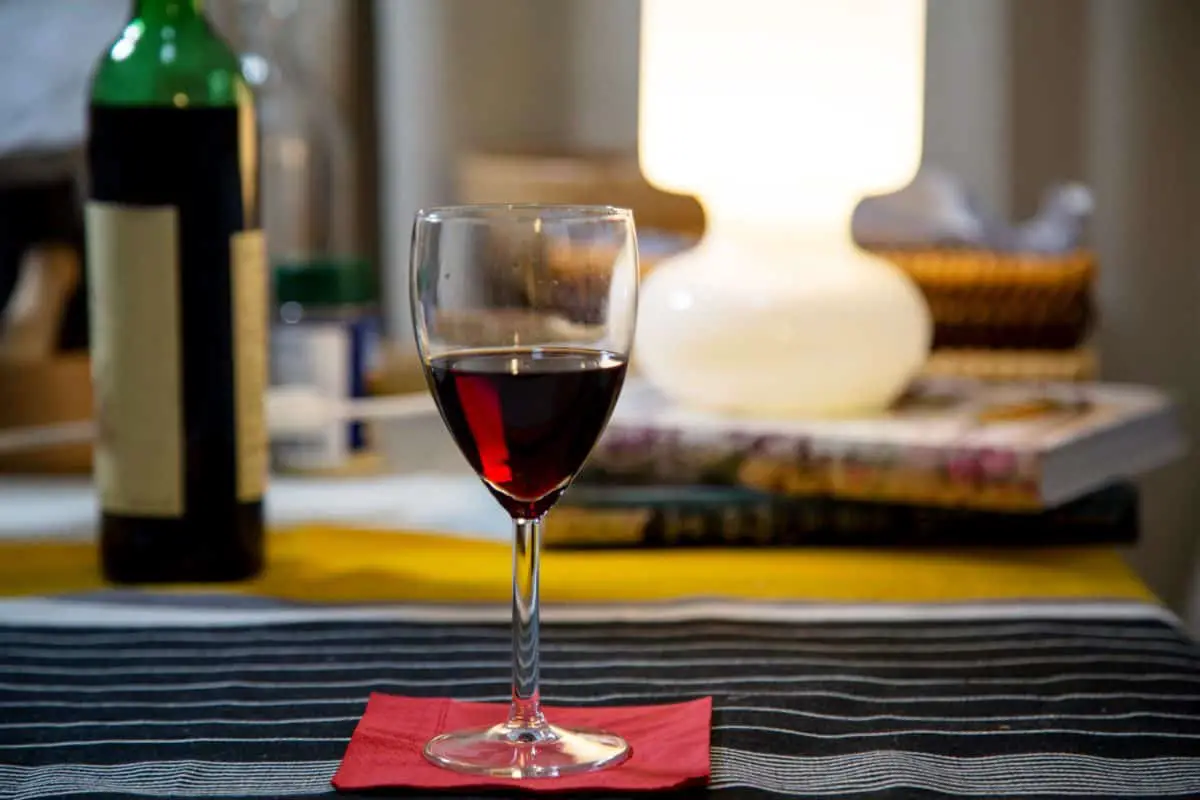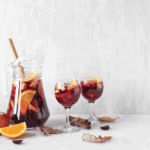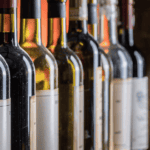There is a lot of misinformation and rumor surrounding the truth of how alcohol affects sleep.
People tend to believe what they want to be the truth the most, so the general consensus is that a small amount of alcohol, like on glass of wine, will actually improve your sleep as well as help you fall asleep quicker.
This is corroborated by a lot of people who see alcohol making them sleepier and assume this is true.

But just because this is a generally accepted fact by a lot of people, does this make it true?
Or is it just a falsehood spread by people hoping that it is true?
This article will cover the truth of alcohol consumption, in particular its relationship with sleeping habits.
If you are not sure if you should have that glass of wine before you sleep, this article will give you the information you are looking for!
How Does Alcohol Affect Your Sleep?
It turns out that even a light amount of alcohol consumption will negatively impact your sleep.
But does this mean you should avoid drinking at all, anytime near when you sleep?
Or can you drink lightly and still sleep well if you know where to stop?
This article will go through all these intricacies and help you work out when it is best to drink to have the best night’s sleep possible.
Different substances like alcohol and drugs are either depressants or stimulants, with the former slowing you down and the latter giving you more energy.
Alcohol is generally seen as a depressant and because of this it will help you fall asleep quicker.
However, this is not a long-lasting effect, and it will wear off in a few short hours as the body tries to get the alcohol out of your system.
So while you might be able to sleep easier, this means that the sleep you are getting is generally of a lower quality.
An explanation of this is made by the NSF (National Sleep Foundation) who describe that drinking increases the production of adenosine, which is a sleep inducer.
But while this, as previously mentioned, will help you fall asleep quicker, the chemical’s effects subside rapidly which make the likelihood of waking up once asleep much more likely than on a night without drinking.
Alcohol consumption is also shown to throw off wave patterns while sleeping with delta and alpha wave activity not being experienced in the correct way leading to a poor quality sleep.
This is further supported by alcohol being reported to decrease the chance of achieving REM sleep, which is the type of sleep that helps the body physically and mentally recharge the most effectively.
So while you may think alcohol is helping you sleep by getting you to drift off quicker, the sleep you are getting is much more likely to be a much worse quality than that without alcohol.
Statistics On Drinking And Sleeping

In 2018 there was a study done by Finnish researchers specifically studying the effect’s alcohol has on sleep quality.
This study considered the differences between light, medium, and heavy consumption of alcohol.
This study was done on 4098 adults, being a considerable sample size with ages ranging between 18 and 65.
The statistics found from this study give some very interesting insight onto the relationship between sleep and alcohol.
- Having a low intake of alcohol reduced the sleep quality by 9.3%
- Medium consumption of alcohol before sleeping (shown to be 2 drinks in a day for men and 1 for women) reduced the sleep quality of participants by 24%
- Finally, having a heavy alcohol intake showed to reduce the quality of sleep by 40%
This study also showed that the effects of alcohol on sleeping patterns was quite similar across gender boundaries, but also showed that alcohol is much more effective and worsens the sleep of younger people than it was on older people.
Advice On How To Sleep And Drink Responsibly
All this information may have scared you completely off of drinking anytime before you sleep to make sure you get the best sleep possible.
But it is possible to drink near the time you are planning to sleep without completely ruining your sleep.
But there is some advice that is definitely worth following to make your quality of sleep is as optimal as possible:
- Dry to get a gap of at least 3 hours between your last drink and when you are trying to sleep to make sure the alcohol is not fresh in your system and affecting your ability to sleep.
- While you are drinking alcohol, also mix in water to make sure the alcohol is not impacting the health of your body as aggressively to minimize the effects it has on your sleep.
- The best way to drink is alongside food as this is usually a good amount of time before you are sleeping as well as digesting the food at the same time mellows the effects of the alcohol. This also helps you measure and keep track of when you are consuming alcohol.
- Finally, you will want to avoid alcohol altogether if you are using sleeping pills. This is because both sleeping pills and alcohol are classified as depressants, and using them together can have dangerous effects. This can include making it difficult to breathe when sleeping, which should be avoided at all cost.
If you snore a lot while sleeping, it is likely that you have a disorder like sleep apnea, which can affect your ability to breathe when asleep.
This can also affect your ability to get a good night sleep, like alcohol consumption does.
The most common type of sleep apnea is OSA (obstructive sleep apnea) and some symptoms include; constant exhaustion, loud snoring, mood swings, and headache and pain when waking up.
Alcohol consumption can worsen this condition or even increase the chances of developing it, so if you feel you are likely to have it, avoid drinking near bedtime altogether.
Takeaway
Hopefully this guide has given you the advice you need to help you drink alcohol safely before sleep, as well as dismissed any rumors that may be affecting your decision-making when it comes to drinking before bed!
- How to Learn Wine Tasting: Essentials for Beginners - March 10, 2024
- How to Learn to Like Wine: Cultivating an Appreciation for the Vintner’s Art - March 10, 2024
- Thanksgiving Sangria: A Flavorful Twist to Your Holiday Table - August 27, 2023








